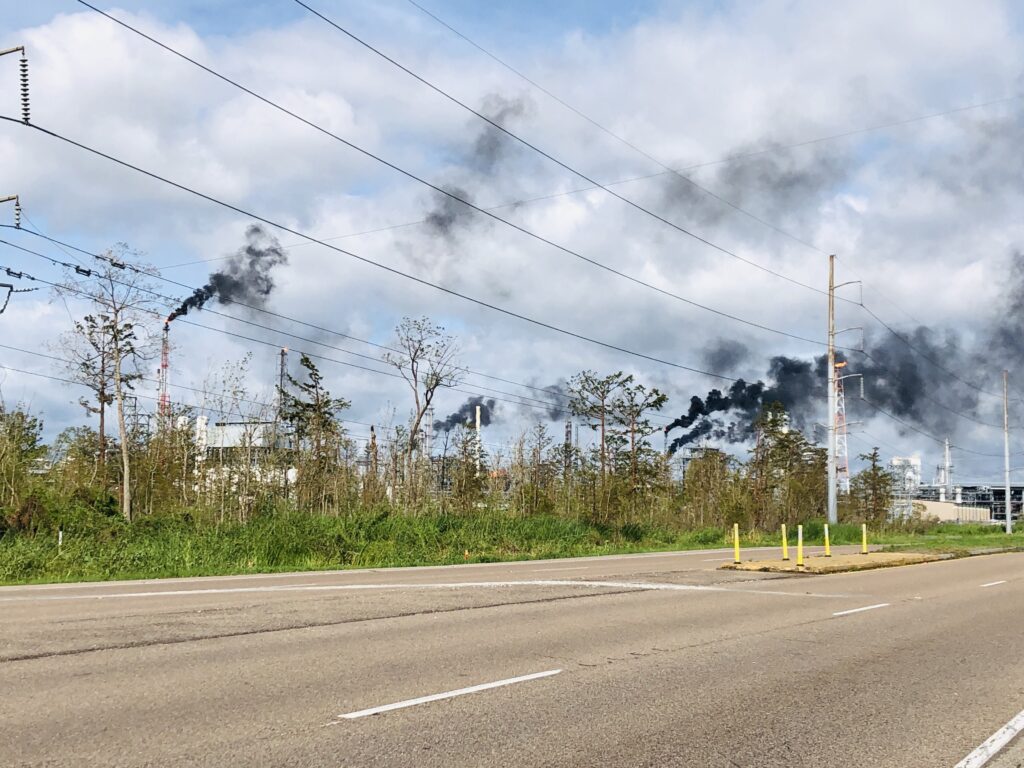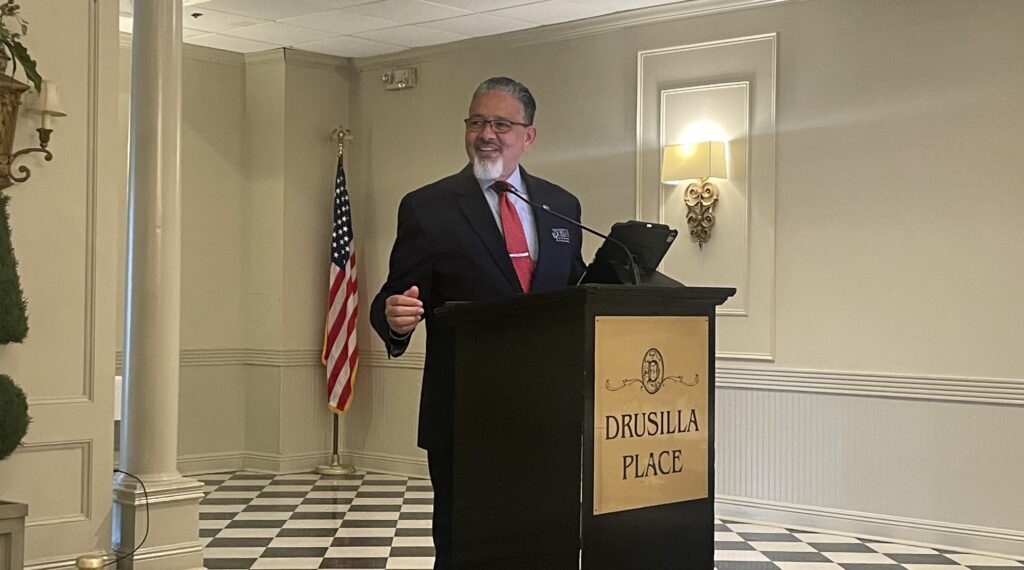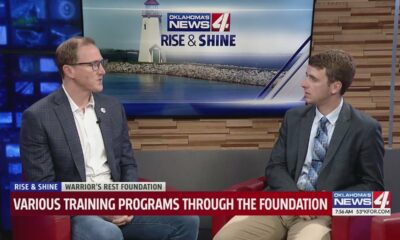News from the South - Louisiana News Feed
Closures of EPA’s regional environmental justice offices will hurt rural America, ex-employees warn

by Julia Tilton, The Daily Yonder, Louisiana Illuminator
March 25, 2025
Environmental justice efforts at the 10 U.S. Environmental Protection Agency (EPA) regional offices have stopped and employees have been placed on administrative leave, per an announcement from EPA Administrator Lee Zeldin earlier this month. Former EPA employees involved with environmental justice work across the country say rural communities will suffer as a result.
Before being shuttered in early March, the EPA’s environmental justice arm was aimed at making sure communities were being treated fairly and receiving their due protection under the Clean Air Act and Clean Water Act. Zealan Hoover, former senior advisor to the EPA administrator under the Biden administration, told the Daily Yonder that this work had big implications for rural places since there are pollution concerns in rural areas across the country.
“EPA was very focused on making sure that not just on the regulatory side, but also on the investment side, we were pushing resources into rural communities,” Hoover said.
According to Hoover, most of the pollution challenges the U.S. faces are not new. He said that the employees — now on leave — who staffed the EPA’s regional environmental justice offices were deeply knowledgeable on the issues affecting communities in their regions; issues which can go on for decades. Hoover said he worries about recent changes to the agency under the Trump administration, which also include a series of deregulatory actions and a proposed 65% budget cut.
“I trust that the great folks at EPA who remain will still try valiantly to fill those gaps, but the reality is that this administration is pushing to cut EPA’s budget, pushing employees to leave, and that’s going to restrict EPA’s ability to help rural communities tackle their most significant pollution challenges,” Hoover said.
GET THE MORNING HEADLINES.
One rural community that has faced years of environmental challenges is where Sherri White-Williamson lives in rural Sampson County, North Carolina. In 2021, the county’s landfill ranked second on the list of highest methane emitters in the U.S. The county is also the second-largest producer of hogs nationwide, and in 2022, it accounted for nearly 3% of all U.S. hog sales.
The hog industry is known for its pollution from open waste storage pits that emit toxic chemicals into nearby neighborhoods. For years, concerns about North Carolina’s hog industry have centered on the disproportionate harm that its pollution does to low-income communities and communities of color since hog farms frequently locate their operations adjacent to such communities in rural counties.
White-Williamson is also an EPA veteran. She worked on environmental justice initiatives at the agency’s Washington, D.C., office for over a decade before moving back home to southeastern North Carolina. She is now the executive director of the Environmental Justice Community Action Network (EJCAN), which she founded in Sampson County in 2020 to empower her neighbors amidst environmental challenges like those wrought by the hog farms and the landfill.
In her early work with EJCAN, White-Williamson said she noticed that conversations about environmental justice often centered on urban areas. Since then, White Williamson said she has focused on educating the public about what environmental justice looks like in rural communities.
“A lot of our issues have to do with what the cities don’t want or dispose of will end up in our communities,” White-Williamson said. “The pollution, the pesticides, the remnants of the food processing all ends up or stays here while all of the nice, clean, freshly prepared product ends up in a local urban grocery store somewhere.”
Another misconception about environmental justice, according to White-Williamson, is that it exists exclusively to serve communities of color. During her time at the EPA, White-Williamson said she spent time in communities with all kinds of racial demographics while working on environmental justice initiatives.
“I spent a lot of time in places like West Virginia and Kentucky, and places where the populations aren’t necessarily of color, but they are poor-income or low-income places where folks do not have access to the levers of power,” White-Williamson said.
When pollution impacts local health in communities without access to such “levers of power,” the EPA’s regional environmental justice offices were a resource—and a form of accountability.
Without those offices, it will be more difficult for rural communities to get the services they need to address health concerns, said Margot Brown, senior vice president of justice and equity at the Environmental Defense Fund.
“They’re dismantling the ecosystem of health protections for rural Americans, and by dismantling them, they’ll make them more susceptible to future hazards,” Brown said of the Trump administration’s decisions at the EPA. “It will impair health and well-being for generations to come.”
Brown worked at the EPA for nearly 10 years under President Obama and then under President Trump during his first administration. Her time there included a stint as deputy director of the Office of Children’s Health Protection. She, along with Hoover and White-Williamson, said that community members will likely need to turn to their state governments or departments of environmental quality in the absence of the regional environmental justice offices.
But White-Williamson noted that state governments, too, receive federal funding. Frozen funds across federal agencies and cuts to health care programs, including Medicaid, could wind up compounding challenges for rural communities trying to mitigate environmental health impacts.
“The communities that most need the assistance and guidance will again find themselves on the short end of the stick and end up being the ones that are suffering more than anybody else,” White-Williamson said.
Hoover described it as a “one-two punch” for rural communities. On the one hand, he said, rural places are losing access to healthcare facilities because of budget cuts.
“And on the other hand, they are also sicker because the government is no longer stopping polluters from polluting their air and their water.”
YOU MAKE OUR WORK POSSIBLE.
This report was originally published in the Daily Yonder. For more rural reporting and small-town stories visit dailyyonder.com.
Louisiana Illuminator is part of States Newsroom, a nonprofit news network supported by grants and a coalition of donors as a 501c(3) public charity. Louisiana Illuminator maintains editorial independence. Contact Editor Greg LaRose for questions: info@lailluminator.com.
This report was originally published in the Daily Yonder. For more rural reporting and small-town stories visit dailyyonder.com.
The post Closures of EPA’s regional environmental justice offices will hurt rural America, ex-employees warn appeared first on lailluminator.com
News from the South - Louisiana News Feed
Easter Weekend: Muggy, warm, and windy

SUMMARY: Easter Weekend will be warm, muggy, and breezy, with mostly cloudy skies and temperatures in the low 80s. Current conditions are in the low 70s, making it a sticky day for events like the Crescent City Classic. While there’s a slight chance of rain on Sunday, most of the day will remain dry. Winds from the southeast could gust near 30 mph. Next week, a front will bring increased rain chances and storms starting Monday, with unsettled conditions continuing into Tuesday and Wednesday. Despite this, warm temperatures in the 80s will persist throughout the week.

Easter Weekend looks very nice! It will be hot, humid, and windy with high temperatures in the lower 80s both afternoons. More clouds will be around with some breaks
News from the South - Louisiana News Feed
Vicente Fernandez and Freddy Fender join National Recording Registry

SUMMARY: This year, Vicente Fernandez’s “El Rey” and Freddy Fender’s “Before the Next Teardrop Falls” were inducted into the National Recording Registry, alongside Lin-Manuel Miranda’s *Hamilton* album. Congressman Joaquin Castro has championed the inclusion of more Latino artists in the registry, noting that Latino representation is only 5%. Over the last three years, with input from constituents, Castro has successfully nominated 30 songs and albums, including iconic Latino tracks. He advocates for more Latino contributions to be recognized, including Selena’s work. Castro will continue gathering nominations for 2026, aiming to better reflect Latino cultural influence in the registry.

Each year since 2000, the Library of Congress has selected influential songs and albums to be preserved in the National Recording Registry. This year, three Latino artists were inducted — two of them with deep roots in Latino culture and South Texas.
News from the South - Louisiana News Feed
Q&A with University of Louisiana System President Rick Gallot on higher education

by Piper Hutchinson, Louisiana Illuminator
April 18, 2025
This is an interview with University of Louisiana System President Rick Gallot that took place earlier this month about how the legislative session and federal changes will impact higher education in Louisiana. It has been edited for length and clarity.
You can also listen to a version of this interview on our new podcast The Light Switch.
Piper Hutchinson: What do you think is coming for higher education this session?
Rick Gallot: I think certainly starting with a standstill budget is always better than starting with a proposed cut. So, you know, we’re certainly very grateful for that. I think there’s a lot of uncertainty, coming out of Washington and with the constitutional amendments that did not pass, obviously that has created some angst in terms of what do we do now, right? And so I think there is, again, just an overall level of uncertainty that we’ll see it … kind of play out over time.
I think if you look at the increased revenue from the sales, sales taxes and other things, we’re certainly not in a real bad spot right now as a state in terms of our finances. So I’m still optimistic that we will work through the challenges in the session, and we will come out good on the other side.
Hutchinson: Looking at the bills that we have so far, what do you think is going to be the most impactful for higher education?
Gallot: It’s hard to say, and when you look at what’s filed versus what ultimately makes it through the process; all bills filed on the front end don’t always make it. Rep. (Emily) Chenevert has come back with another diversity, equity and inclusion bill. We will certainly have to see how that plays out. The bill she had last year started one way and ended up another. … Certainly with all other higher ed leaders, she was very receptive to meeting with us and working through some of those challenges last year. At the end of the day, I think the budget is always going to be the main focus that could impact the trajectory going forward.
Hutchinson: There’s one bill that’s going to have a big impact for your system, talking about transferring UNO back to the LSU System. What should we expect on that front?
Gallot: For me personally, it’s a full-circle moment. I was in the house when UNO was transferred from LSU to the University of Louisiana System. You know, I just want what’s best for the students, for the campus community at the University of New Orleans. It is a legislative prerogative. They have the authority to transfer universities from one system to the other. So if this legislation is successful, we will certainly do our part to ensure that it is a seamless transition. We will work with LSU, with Board of Regents and with the legislature to ensure that the transition is as smooth as it could possibly be.
Hutchinson: What’s that like for you [as a former legislator] during the legislative session, being kind of outside the rails?
Gallot: Well, I certainly have a lot of respect for our legislators and the sacrifices they all make in serving. I’m a huge fan of Stephen Covey’s “Seven Habits,” and one of those is: “Seek, first to understand then to be understood.” And so I think that’s helpful to understand the pressures that our legislators are under, knowing that there’s a lot that they have to balance. I think it’s helpful, quite frankly. And I don’t think I burned any bridges while here.
I mean, I did oversee redistricting, so maybe I did [burn] one or two. But for the most part, I still have good relationships with many of my former colleagues … who are still there. I’m grateful to have the opportunity to be a part of the process but from this side.
Hutchinson: There has been a little bit of controversy in the LSU System lately, that’s reignited these conversations about curbing tenure. What are you hearing on that front, and what would that mean for higher education as a whole if they did take an axe to tenure?
Gallot: Going back to COVID, and you think about faculty members, who go through the process of, not only a bachelor’s and a master’s and a terminal degree. You know, they get hired, they’re on a tenure track, they’re researching, they’re writing, they’re building their portfolio, and at the appropriate time they apply for tenure. I think we have to respect that process.
I think it is one that is deeply rooted in higher education, and so I think we certainly have to respect faculty and that they have earned this.
Now, having said that, it’s always one or two bad apples that will spoil the barrel, as they say. I don’t know that simply doing away with tenure is the answer.
If the legislature passes something, then we, as a state system, will certainly abide by whatever changes may be made. I think we want accountability at all levels, that we want our students to be in the best position to learn. We want our faculty to be in the best position to teach, and that our students would graduate and go out and make a difference in society. So we’ll certainly be watching it closely, and hopefully we will see thoughtful debate throughout the process. And again, with whatever the ultimate result is, we will work with it.
Hutchinson: I can’t not talk about what’s going on at the federal level. We’re talking about cutting research funding. There are concerns about immigration and graduate students, and certainly tariffs could increase expenses for higher education. How is the UL System adapting to all of this?
Gallot: Right now there’s so much uncertainty just across the board. Whether it’s the potential loss of research funding and indirect cost, for instance, universities build their budgets based upon what they believe the revenue stream will be from these research grants. I’m hopeful that we will sort of get through this period of uncertainty, and we will see things sort of settle down to be a little more predictable. But you know, at the same time, we will have to adjust if the rules are changed. If the funding formulas are changed, we will just have to adapt. We always have and we always will.
GET THE MORNING HEADLINES.
YOU MAKE OUR WORK POSSIBLE.
Louisiana Illuminator is part of States Newsroom, a nonprofit news network supported by grants and a coalition of donors as a 501c(3) public charity. Louisiana Illuminator maintains editorial independence. Contact Editor Greg LaRose for questions: info@lailluminator.com.
The post Q&A with University of Louisiana System President Rick Gallot on higher education appeared first on lailluminator.com
-

 Mississippi Today7 days ago
Mississippi Today7 days agoLawmakers used to fail passing a budget over policy disagreement. This year, they failed over childish bickering.
-

 Mississippi Today7 days ago
Mississippi Today7 days agoOn this day in 1873, La. courthouse scene of racial carnage
-

 Local News6 days ago
Local News6 days agoSouthern Miss Professor Inducted into U.S. Hydrographer Hall of Fame
-

 News from the South - Alabama News Feed5 days ago
News from the South - Alabama News Feed5 days agoFoley man wins Race to the Finish as Kyle Larson gets first win of 2025 Xfinity Series at Bristol
-

 News from the South - Alabama News Feed5 days ago
News from the South - Alabama News Feed5 days agoFederal appeals court upholds ruling against Alabama panhandling laws
-

 News from the South - Alabama News Feed7 days ago
News from the South - Alabama News Feed7 days agoBellingrath Gardens previews its first Chinese Lantern Festival
-

 News from the South - Texas News Feed7 days ago
News from the South - Texas News Feed7 days ago1 dead after 7 people shot during large gathering at Crosby gas station, HCSO says
-

 News from the South - Florida News Feed6 days ago
News from the South - Florida News Feed6 days agoJacksonville University only school with 2 finalist teams in NASA’s 2025 Human Lander Challenge










































